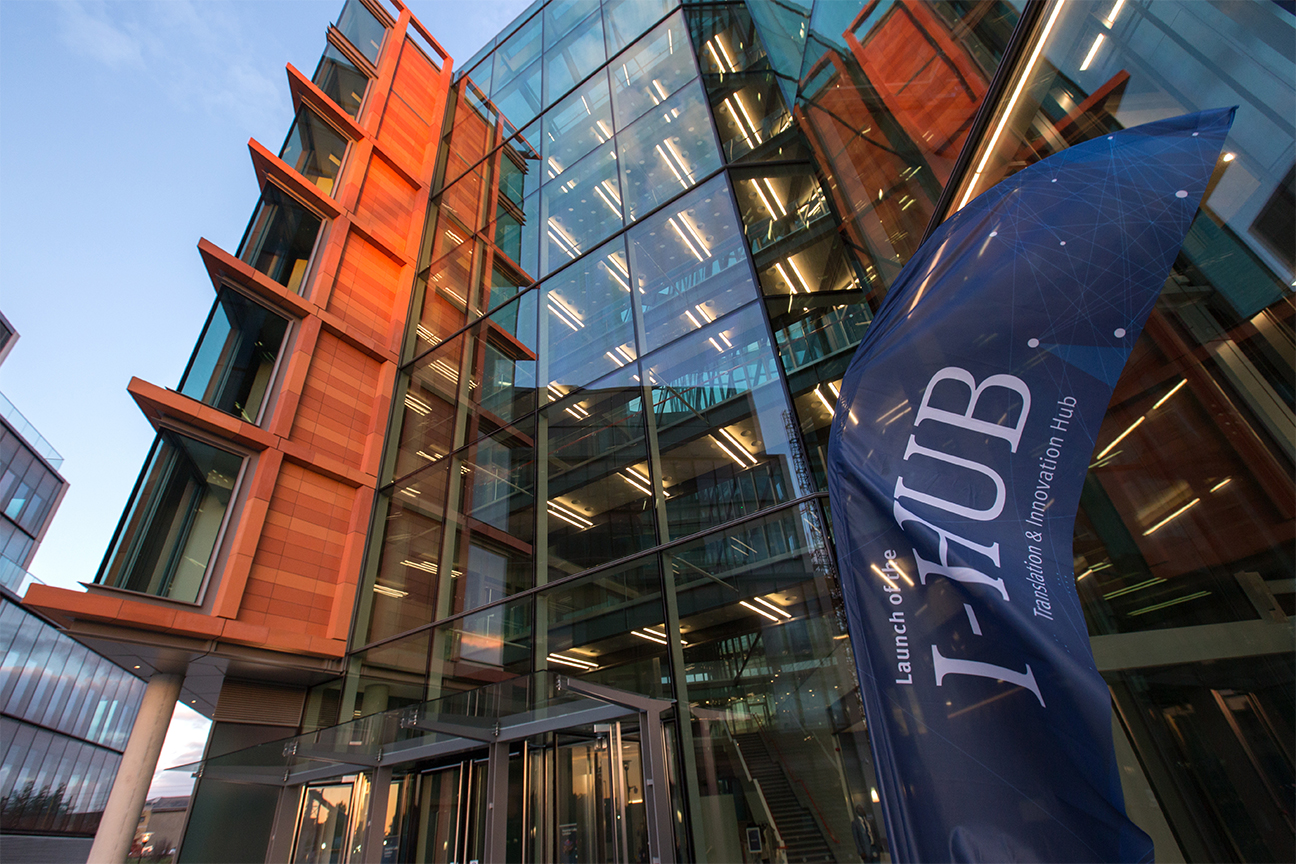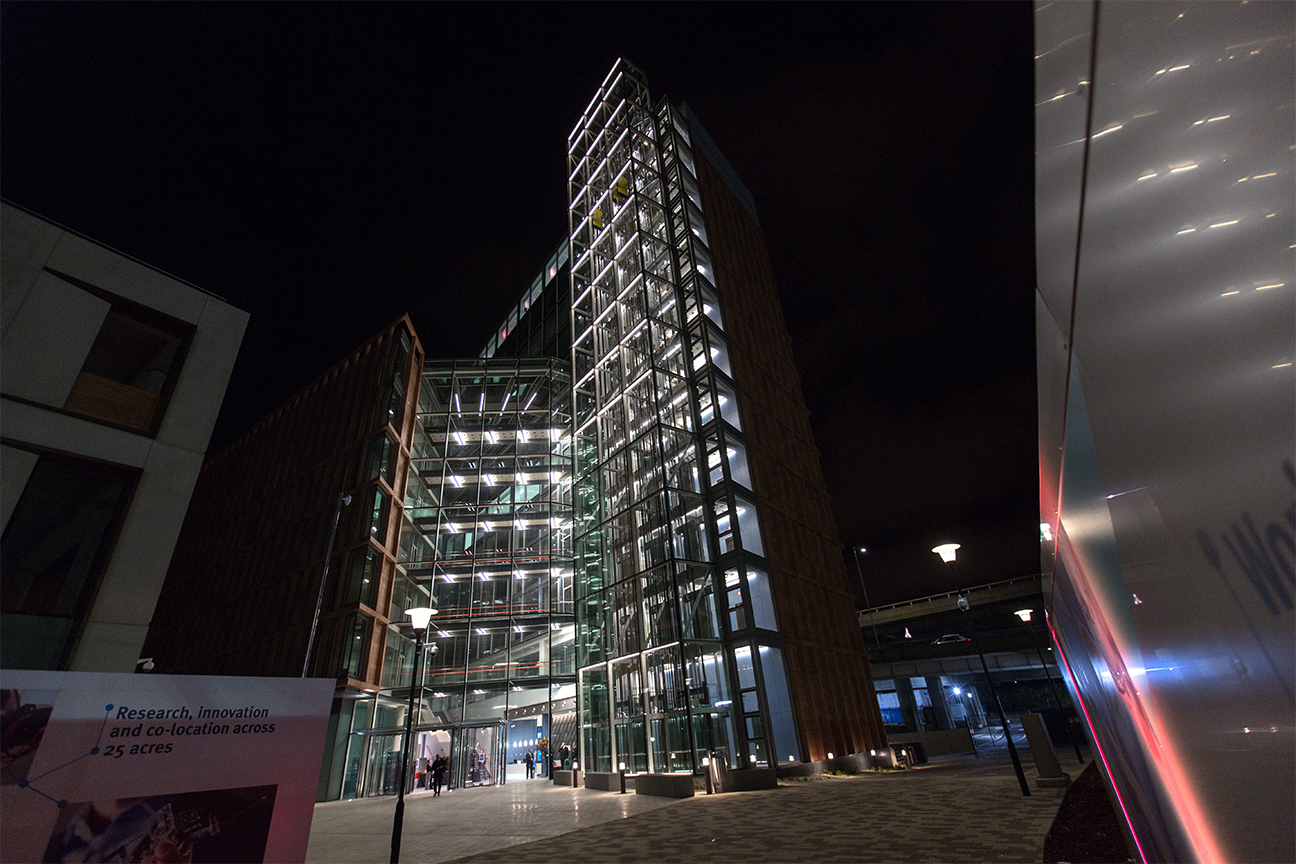LONDON – The Air Force, Army and Navy international research offices jointly became the newest tenants last month at the Translation and Innovation Hub (I-HUB) at Imperial College London’s expansive White City Campus — a move expected to enhance partnerships with academics, industry, non-traditional innovators, and the UK Ministry of Defence, under the coordination of the Institute for Security Science and Technology (ISST) Innovation Ecosystem.
“It’s all about relationships and tapping in and leveraging international talent,” explained Col. D. Brent Morris, the International Science Division Director at the Air Force Research Laboratory’s Air Force Office of Scientific Research (AFRL/AFOSR). “Co-locating with Imperial College London is a wonderful opportunity to strengthen the relationships formed through our existing grants and is a direct realization of the 2030 strategy call to build bridges and foster innovation on critical research topics.”
A call to action in the 2030 United States Air Force Science and Technology Strategy helped inspire the selection of this new location. The strategy document highlights the urgent need to enact more agile collaboration approaches with both traditional and non-traditional innovators, and the tri-service International presence in the I-HUB allows AFRL/AFOSR to do just that. By working with ISST — Imperial’s hub for security research, engagement, innovation and education — the new location enables immediate stronger ties with researchers at Imperial College London and provides opportunities for scientific breakthroughs with rapid return on investment.
AFOSR’s footprint at Imperial’s International I-HUB will be operated by the European Office of Aerospace Research and Development (EOARD), a detachment of AFRL and the international arm of AFOSR. EOARD’s mission, along with the rest of the AFOSR International Science Division, is to provide the Department of the Air Force awareness of, engagement in, and relationships with overseas basic researchers. The co-location at Imperial College London and coordination with ISST will make it prime for embedding AFRL scientists and engineers working on shared research interests as well as hosting workshops, conferences and meetings with new partners.
The I-HUB space will provide the same benefits to its tri-service partners — the international offices of the Office of Naval Research Global (ONRG) and the Army’s Combat Capabilities Development Command (CCDC) — making it a key Department of Defense resource for international science collaboration. “Forging trusted relationships with world-renowned researchers requires an enduring presence, collaboration and space to innovate together,” said ONRG Commanding Officer Capt. James Borghardt. “The I-HUB at Imperial will certainly continue the tri-service enduring presence in London while improving our ability to collaborate and our access to innovation leaders.”
Thomas Mulkern, the Deputy Director of CCDC-Atlantic, added “From a US Army CCDC perspective, the strategic co-location with academia, industry, U.S. DoD and UK government is crucial to solving Army challenges. We look to build trust in the London innovation ecosystem through proximity and this trust will enable collaboration opportunities.”
The journey to the I-HUB was a long and unprecedented one. Since WWII, the Air Force, Army and Navy had occupied several offices at another downtown London building. The space was incredibly affordable, but came at a high operating cost. The lease was nearing its end and the owners wished to repurpose the prime real estate. As an accommodation for ending the lease early, they offered to find comparable space.
Following a year of negotiations and a series of agreements among the owners, the UK Ministry of Defence, and the Air Force Civil Engineering Center, all the signatures were in place to allow EOARD, ONRG, and CCDC to move into Imperial College London’s I-HUB for the next nine years at no operating cost to the DoD.
Additionally, AFRL is working plans to embed two employees from the Information Directorate at the new facility as early as this Fall.
“These employees will serve as researchers and liaisons to the various universities and institutions across the UK to leverage global research partnerships and rapid innovation opportunities,” said Lt. Col. Logan Mailloux, AFOSR’s Chief of Staff and one of EOARD’s nine International Program Officers. “For example, the UK is investing heavily in secure hardware design, artificial intelligence and quantum sciences; all of which are of tremendous interest to us.”
As an added benefit to the location, the new space is operated by the International Workplace Group, a company that specializes in managing flexible workspaces. By joining their network, the tri-services gain hosted access to 3,300 working locations worldwide that can further the international science and research reach of the U.S. tri-service enterprise.
The three services expect to host a ribbon cutting once lockdown restrictions have been eased.

The Air Force, Army and Navy international research offices jointly became the newest tenants June 19 at the Translation and Innovation Hub (I-HUB) at Imperial College London’s expansive White City Campus — a move expected to enhance partnerships with academics, industry, non-traditional innovators, and the UK Ministry of Defence, under the coordination of the Institute for Security Science and Technology (ISST) Innovation Ecosystem. (Photo courtesy of Stewart Oak/Imperial College of London)

The Air Force, Army and Navy international research offices jointly became the newest tenants June 19 at the Translation and Innovation Hub (I-HUB) at Imperial College London’s expansive White City Campus — a move expected to enhance partnerships with academics, industry, non-traditional innovators, and the UK Ministry of Defence, under the coordination of the Institute for Security Science and Technology (ISST) Innovation Ecosystem. (Photo courtesy of Stewart Oak/Imperial College London)

